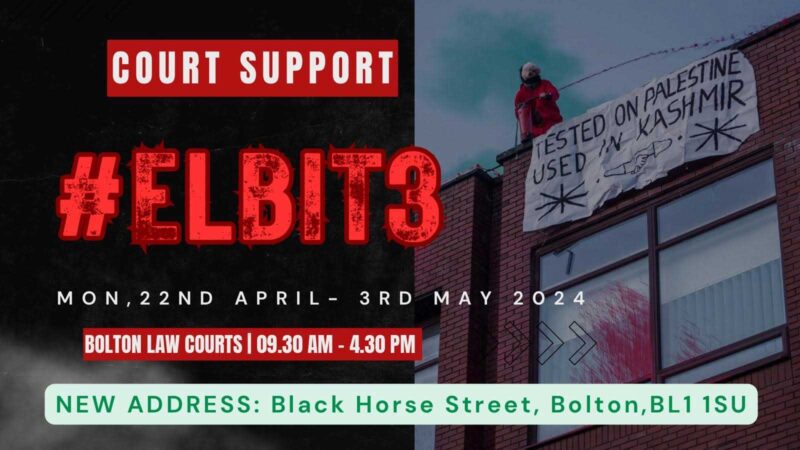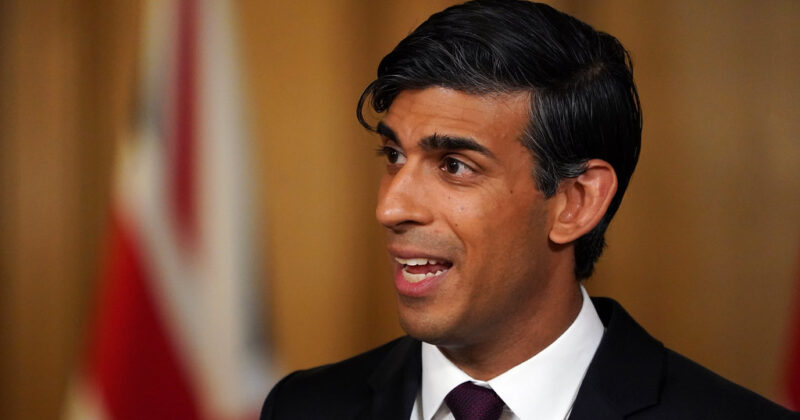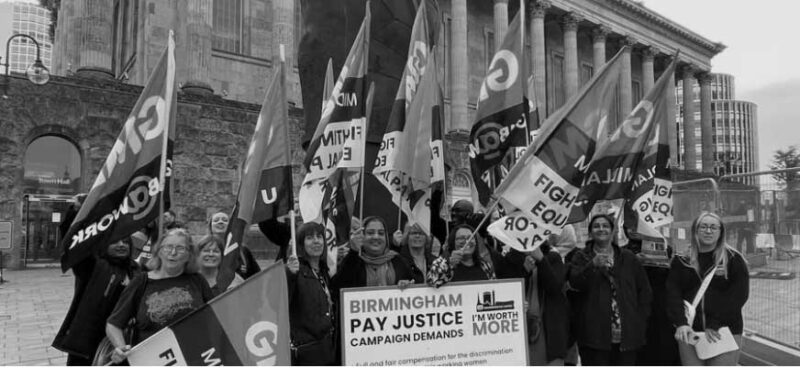2011 YEAR OF REVOLUTION
 From credit crunch to global crisis
From credit crunch to global crisis
The fightback begins
WHAT STARTED as a credit crunch became a worldwide recession. The banks demanded public money to keep their system afloat – now the governments of the world face huge deficits in their budgets and demand the poor pay the cost of this crisis.
Mervyn King, head of the Bank of England, said he was surprised that people were not more angry with the bankers for what has happened. “Now is the period when the cost is being paid. I’m surprised the real anger has not been greater than it has.”
But the resistance has begun! Around the world millions are fighting back.
Despite the deafening chorus of the capitalist media, economic experts and politicians, demanding cuts, more cuts and yet more cuts, ordinary people are fighting back. Whether students demonstrating on the streets of London or workers on the streets of Athens and Paris, we are fighting for our futures, jobs, communities, education, pensions and healthcare.
And in the Middle East, bitter poverty and mass unemployment combined with vicious dictatorships to produce not just resistance but outright revolution.
In both cases and all over the world, it is young people who are erupting with rage against the prospect of a life without hope or dignity. The youth are fighting not just against inequality and outright poverty but also against the police beatings, arrests and brutalisation, whether in Parliament Square or Tahrir Square.
In the liberal democratic capitalist countries, young people and trade unionists are fighting the right wing governments and the media barons that backs them. In the outright dictatorships under which most of humanity lives, youth have thrown off their fear of secret police and torturers and started to make revolutions.
The launch of massive austerity measures by European governments in 2010 has generated organised resistance movements across the continent. The so-called European social model, what we call the welfare state, is now under direct attack. In Britain it is to be replaced by the “Big Society” – a return to a pre-1945 system based on charities and a new Poor Law.
In the Western world so far, resistance has done little more than slow the pace of the capitalist offensive – but so far we have not been able to halt the attacks. The reason is that the “moderate” leaders of the workers movement (like the TUC and the Labour Party in Britain) would rather face defeat than unleash action on a scale that can win, such as indefinite general strikes. They know full well that this would destabilise the whole system and they have all pledged never to do that. On the contrary, they want to govern the system for the bosses’ not overthrow it with the workers.
Today, in a historic crisis of capitalism, the basis for winning reforms has narrowed almost to nothing because the stability of the whole profit system depends on the bosses winning a major victory over the working class. That is why the only way to stop the cuts is to link our resistance to the fight to overthrow the cuts governments and the capitalist system itself.
Workers rise up
In 2011 the fightback also erupted where many least expect it. In recent years, US workers have accepted cuts, factory closures and give-backs (reductions in wages), and seen the numbers of trade unionists remorselessly decline. But this year’s huge battles in Wisconsin and Ohio show how US workers will fight when their backs are to the wall.
In Europe the picture was even more militant. In 2010 there were eight one-day general strikes in Greece, Spain and Portugal. In Ireland hundreds of thousands demonstrated and struck, sweeping away the bosses main party since the Republic’s foundation, Fianna Fail, which introduced four austerity budgets and handed the economy over to the IMF and EU, in an election landslide. Millions have marched and struck in Italy against Berlusconi and in France in October-November saw mass strikes and demos against Sarkozy.
In the UK in November school and university students have marched in their thousands and occupied universities and colleges. They have not forced a serious retreat yet, but they have exposed the savagery of the cuts to millions and the popularity of the government imposing the cuts has slumped.
But the reason the cuts packages have not been defeated and the governments imposing them driven from office is straightforward. A one-day general strike is a demonstration, a manoeuvre to rally the troops. It is not the declaration of war that an all out strike is and, unless the enemy is weak and divided, it will not succeed. Indeed, if repeated again and again, it will dissipate and demoralise our own forces.
That is why the fight against the cuts needs to go beyond one day and separate strikes, and combine into a united indefinite political strike of the whole class.
The Middle East in revolt
Today all eyes are on the revolutionary upheavals in North Africa and the Middle East. There millions of people face hunger due to rising food prices, mass unemployment or underemployment, but also a lack of dignity and humiliation by cruel and corrupt rulers. The new media – such as Al Jazeera, websites, blogs, Facebook and Twitter – have enabled the universal character of these outrages to become known, especially to the youth.
They are aware too that the western world lives in relative wellbeing and with democratic rights – indeed its global media boasts of this. Why should they be excluded? They can see how the corporations of imperialist nations suck the Third World dry of their natural resources, bribing and corrupting the local ruling classes. This leaves their countries under- developed, with little or no welfare, with chronic structural unemployment. Low wages are the norm. IMF-promoted privatisation strips the nation of its infrastructure, the market commodifies everything and nothing is safe from the expansion and demands of capital to exploit and control. These conditions make people restless, angry and wanting fundamental change.
The West does indeed send back a tiny part of the its plunder but most of the “aid” is in the form of guns and tanks. Egypt gets $1.3 billion a year. Bahrain, the poorest of the Gulf states, gets $19.5 million a year; Yemen is given $35 million. Israel receives £3 billion, in order to police the Palestinians and act as the gendarme for imperialism in the region. Since making his peace with Blair and Sarkozy, Gaddafi has received record arms sales from the UK, while his people suffer under dictatorship and in poverty.
Half of the Middle East and North African regions population is under the age of 30. They are largely educated, but with no prospects for careers. Some try and go to the West to find work and to send money home, but the West is closing its borders tighter every year.
In countries that exercise such strict censorship over the print media, social media websites play a crucial role in connecting people, fostering the exchange of ideas, and creating the conditions for civil debate and mobilisation.
The bloggers are the modern equivalents of the revolutionary pamphleteers of the American and French revolutions. They are the revolutionary moles, burrowing away under the regimes, spreading dissent and daring to exercise free speech. They can face imprisonment or worse. Navid Mohebbi, an 18-year old, was arrested, imprisoned and beaten for blogging on women’s rights in Iran. Kareem Suleiman in Egypt was imprisoned for four years for criticising Mubarak. These brave individuals are just the tip of an immense iceberg threatening dictatorships across the planet.
What is so inspirational about these struggles is that for years these countries were maintained under the iron heel of the dictators, but today people are fighting back – proving that everywhere that there is oppression and exploitation, there is also the possibility of resistance. The path is not an easy one, but it is a necessary one – one that, with the right revolutionary leadership, can overthrow all dictators and exploiters.
Women on the front lines
In the struggles of 2011 women are everywhere. In Tahrir square they disproved the myth that the women in the Muslim countries are passive, accepting exclusion from public life. Large numbers of women – some wearing hijabs, some not – fought and organised alongside men to bring down Mubarak. In Europe and America women are playing a crucial role in the fight against austerity.
They know that these cuts will hit them hardest. Women everywhere are oppressed under capitalism, but every resistance struggle can turn into a fight for women’s liberation too; one where women as frontline fighters liberate themselves from oppression!
Are peaceful revolutions possible?
The revolutions and mass protests have proved once more that our rulers always use force to defend their power. It is an illusion that the struggle against capitalism can be peaceful. Politicians who said the protesters in Egypt must remain “peaceful” are just hypocrites, since they know every serious issue is ultimately decided by force. Usually that force is exercised by the state. But some people tell us revolutions must be peaceful and can not use force. Tell that to the youth of Tahrir, under attack from Mubarak’s brutal thugs. If they had not defended themselves with makeshift weapons they would have been driven out of the square.
When the students in Britain protested to defend education they too were met with violence from the police. In France and Greece striking workers have been violently attacked by riot police.
We must defend ourselves, with force if need be, and be under no illusions that our rulers will give up their power unless they are forced to do so.
Now we need a Fifth International
New forms of communication, especially social media, have played a huge and positive role, creating networks and mobilising masses on the streets against dictatorial regimes. This is revolution in the 21st century – not only televised but Twittered and Facebooked as well.
But we need to go further. In Egypt Mubarak has gone but the army is still in power. The Egyptian workers and revolutionary youth, whose strikes and resistance beat the police and brought down the regime, still face a government of tyranny and oppression. Now they need more than a social network – they need a working class party to fight for a different type of government and a different system.
This means going beyond the “new” methods to a radical redicovery of some “old” ones – methods the working class has known in every generation. In every country the working class in its millions must come to the head of the movement. This is no illusion or daydream of Trotskyists; it is the urgent task of today. It is the difference between a world of increasing barbarism, or one which breaks free from misery and oppression for good.
The programme we need is one that starts from the burning issues – austerity, cuts, hunger, unemployment, legalised police repression or outright dictatorship – and meets these with powerful counter-attack: the all out general strike, mass demonstrations, the popular uprising. To develop and extend these actions, new and also old forms of organisation are needed – revolutionary parties on the genuine democratic model of Lenin and the Bolsheviks in 1917 – not the Stalinist bureaucratic tyrannies.
Such parties cannot be built in isolation. We have to learn lessons from one another around the globe, helping each other not simply spontaneously but as part of a conscious plan. In short we need a revolutionary working class international – a Fifth International.






